King Durin III in The Lord of the Rings: The Rings of Power
0 comments
King Durin III: A Pivotal Figure in "The Lord of the Rings: The Rings of Power"
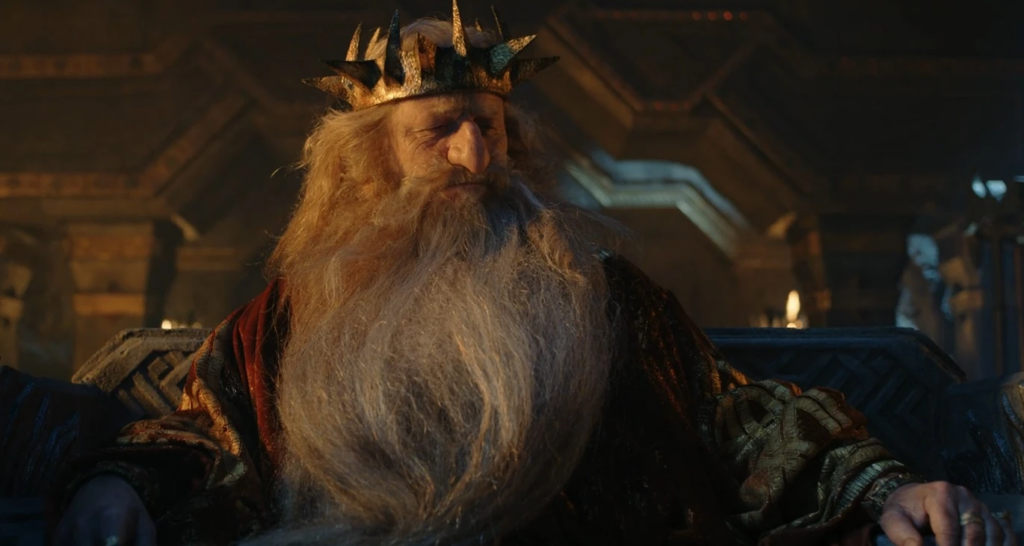

INTRODUCTION
In the television series "The Lord of the Rings: The Rings of Power,” King Durin III portrayed by Peter Mullan is one of the key characters whose actions determine the plot and the power balance of Middle-earth. Being a ruler of Khazad-dûm in the Second Age his character adds a deeper look into the dwarven side and their kingdom’s glory and struggles. Durin III is important in portraying the ancient heritage and the traditional culture of the dwarves, as well as the political and social systems in the given period. His leadership is set when Khazad-dûm is in the height of its strength and wealth but is threatened by both internal and external forces. Their plot is a complex of such elements as inheritance, customs and politics that helps the viewers to get deeper insight of the dwarves and their position in Middle-earth. The series expresses the idea of leadership, historical responsibility, and the struggle between the continuity of the traditions and the reforms through the character of Durin III. His relationships with other major characters, especially his son Durin IV and envoys of other races give the reader a detailed account of the relationships that define the story and the plot as well as the political and social systems in Middle-earth.
The Leadership Style of King Durin III
Traditional Values and Cautious Diplomacy
The character of the dwarven king can be described as conservative, traditionalist, and rather reserved in terms of diplomacy. He has a lot of regard for traditions and traditions set by his forefathers, he sees these as important to preserve the order and the character of Khazad-dûm. This traditionalist approach is evident in his cautious diplomacy and conservative measures, which focus on the protection of dwarven culture and the stability of the kingdom. His period is rather problematic, as the kingdom is threatened by other races and has internal conflicts that should be solved wisely. His leadership has a strategic and diplomatic approach and it seems that he wants to avoid these issues without conflicts.
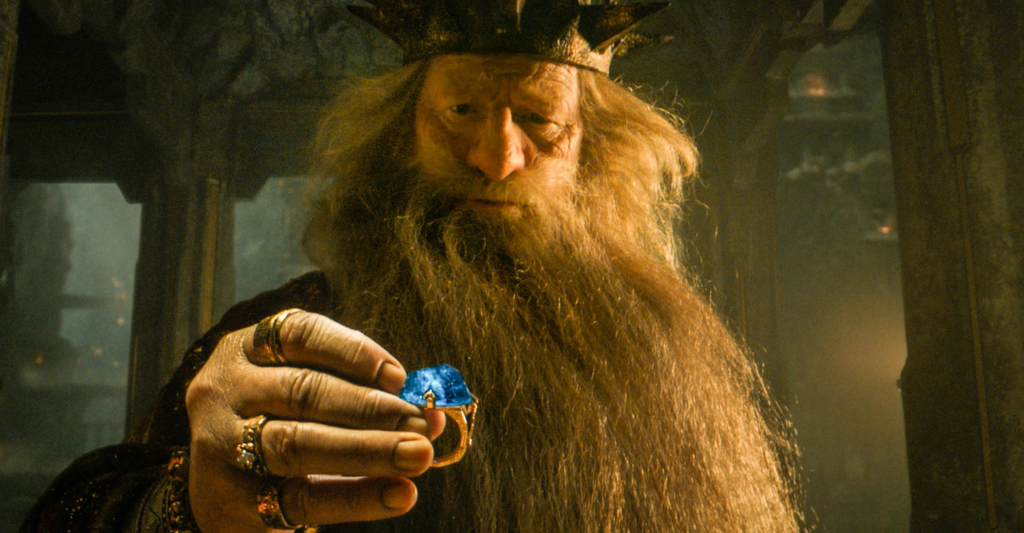
Focus on Internal Stability
The other important aspect of his leadership is the focus on keeping the internal order in Khazad-dûm. Although some of his counterparts may have been more inclined to the external conquests or accomplishments, he pays much attention to internal matters and the traditional principles of the kingdom. This aspect is well illustrated in his relationship with his son where he has a hard time coming to terms with the new generation prince’s progressive agenda. His leadership style depicts a blend of the traditional and the modern, a thing which may not have been a challenge to his ancestors in the same way. This approach is in line with the historical environment of his reign, which is characterized by relative stability, but also certain threats from outside and internal enemies.
Relationships and Conflicts
Father-Son Dynamics
Another important relationship that can be identified in the series is the father and son one, where the father is the king. This dynamic is tension and two different conceptions of the future of Khazad-dûm. It is a major source of dramatic conflict that the father is a traditionalist while the son is progressive and has ambitions. Their conversations are also very revealing of their internal conflict between the ability to preserve the current state of affairs and the need to change. They are also the cause of personal and political tensions that stem from the father’s refusal to back his son’s bolder initiatives. It not only represents the generation gap, but also enhances the characterization, thus becoming a focus of the series.
External Diplomatic Challenges
Being the king of Khazad-dûm he will have to operate in the political environment of Middle-earth which means that he will have to deal with other races for example elves. The series depicts increasing conflict between dwarves and elves and his command is challenged by the necessity to keep diplomatic relations with the latter while facing threats. His slow and unadventurous nature is well illustrated as he has to navigate external threats and attempt to manage the relations between Khazad-dûm and other kingdoms. This conflict combines the political battle as well as the struggle of finding partners in the ever evolving world.
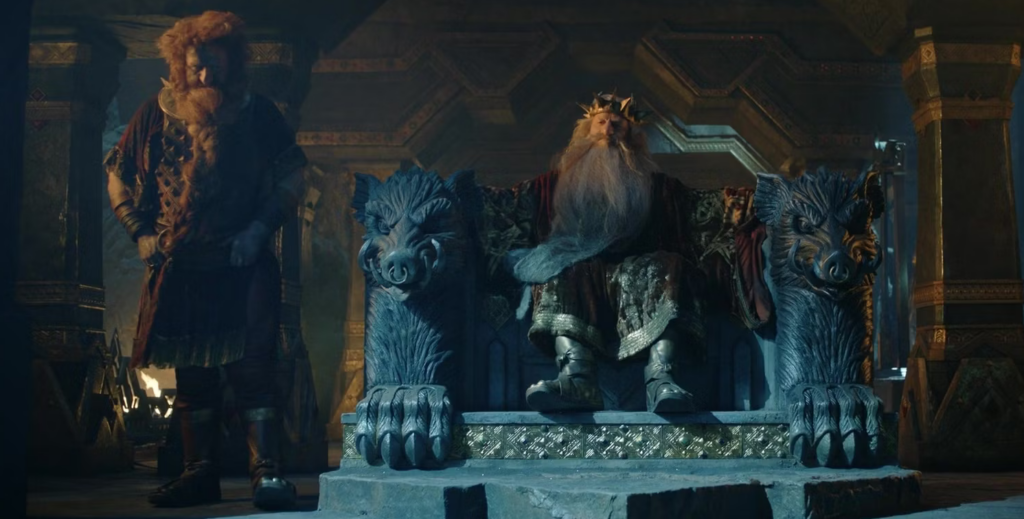
Internal Dissent and Resource Management
Inside Khazad-dûm the king has a lot of problems that are connected with civil strife and the management of resources. The series brings into the scene various groups and people with their own aims and plans, which complicate his reign. These internal conflicts include leadership struggles among the dwarves, political differences and conspiracies against him. The opposition within the kingdom is another factor that has great concern since the government has to ensure that the kingdom remains stable and united, which is difficult in a large kingdom. Furthermore, as the leader of a domain that is rich in resources and power, he has to solve problems connected with the use of resources, civil strife over the distribution of resources, and the necessity to solve the economic problems.
The Dwarven Perspective in Middle-earth
Cultural Identity and Heritage
The character also connects the reader to the history of the dwarves in Middle-earth. As for him, the audience learns about the history and culture of Khazad-dûm and its glory and its fight. His portrayal contributes to the development of the dwarves’ culture and thus enriches the series’ depiction of Middle-earth’s societies and power relations. His character is important to show the heritage and the culture of the dwarves, as well as the political and social context of the time. The emphasis on cultural background and traditions is an interesting approach to the dwarves as a race and their role within the context of Middle-earth.
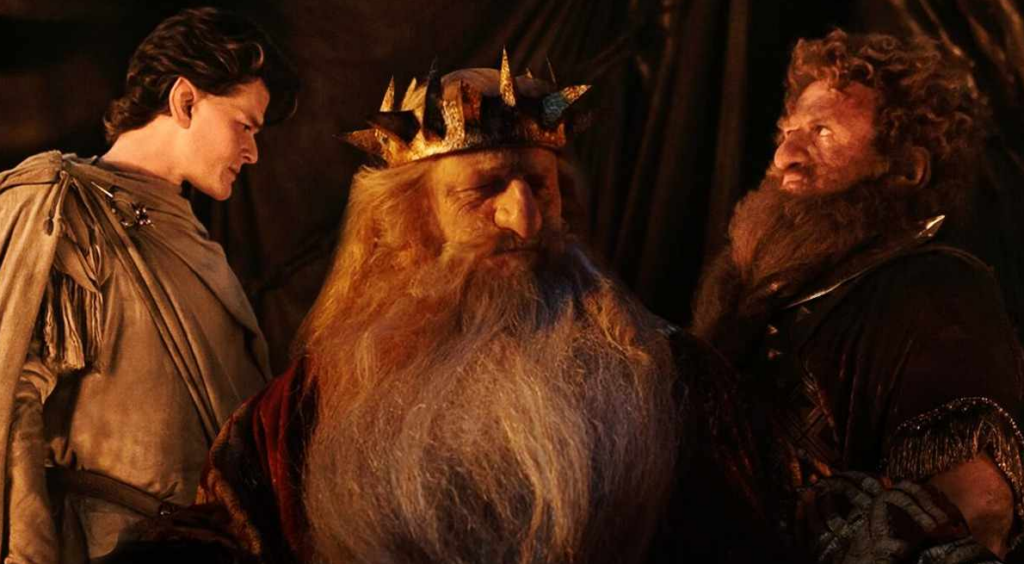
Political Influence and Alliances
He is the king of Khazad-dûm and thus has a great say in what goes on in Middle-earth. The kingdom is rich and has resources and geographical advantage that places it in a strategic position in the political system. The decisions and actions that he takes have immediate consequences on the regional politics especially with regard to other races and realms. The way he preserves harmony between the races while ensuring the security of his own people is a clear evidence of his diplomatic skills as well as his contribution to the formation of the political system in the given world. The series shows how his choices about succession and the future of Khazad-dûm affect the kingdom’s political future and position in Middle-earth.
Response to External Threats
Sauron and his evil forces are always in the background and his actions are driven by his desire to defend Khazad-dûm and other problems in Middle-earth. This threat is something that he has never embraced with gusto and his attitude towards it can be described as tactful and defensive. The series shows different actions taken in the kingdom to prepare for its protection and readiness for the possible invasions including the construction of the walls, gathering the supplies and being alert. He is also a leadership type that cares for his people and the stability of the kingdom against any external aggression. This response to external dangers is a major factor in the development of the political situation in Middle-earth and proves the role of Khazad-dûm in the regulation of larger conflicts and stability in the region.
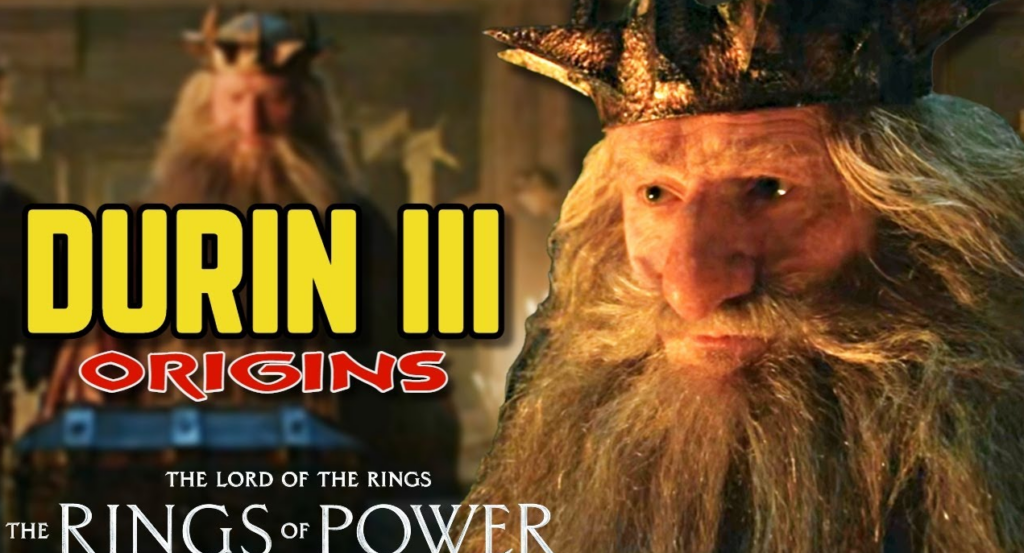
CONCLUSION
In "The Lord of the Rings: In “The Rings of Power,” King Durin III is presented as a significant character and the ruler during the decisive period in the dwarves’ history. The main idea of his reign is the ability to maintain the status quo while adapting to the new conditions of Middle-earth. His leadership is not limited to the area of Khazad-dûm only, but it plays an important role in the political affairs of Middle Earth and the relations between various races and kingdoms. By means of the protagonist, the show touches upon the issues of continuity, succession, and the difficulties of leadership in the world that is gradually becoming more dangerous. The show’s portrayal of dwarves and their leadership is complex and multifaceted due to his cautious diplomacy, the emphasis on internal stability, and his attempts to protect his kingdom from external threats. The struggles he encounters at home and outside home make the issue of power and responsibility very interesting to explore. In conclusion, King Durin III can be viewed as an important character in the series as it gives the viewers a glimpse into the dwarven society, politics, and history, thus adding to the Middle-earth experience and giving a fresh look at this period of the world’s history.

Waivio AI Assistant
How can I help you today?
Comments